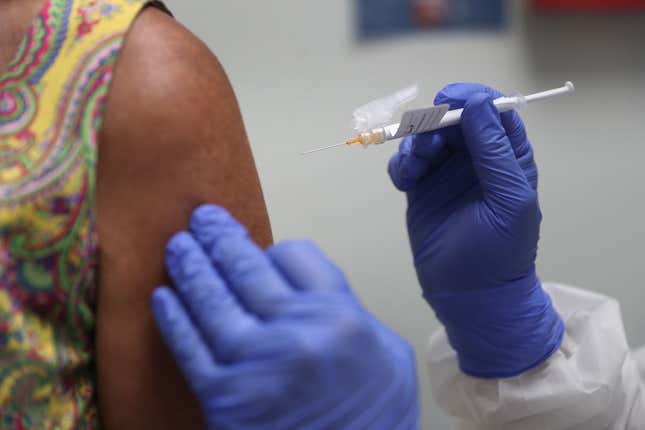
It’s unfortunate but true. COVID-19 is killing Black people at an alarming rate and it is just a manifestation of what we already knew about the public health system and its treatment of people of color.
Black people are at higher risk to catch COVID-19 and have an increased chance of severe death and disease as a result of it, according to NPR. Analysts and researchers who are part of the Black Equity Coalition, an organization that studies the data from the government and provides health intel, recently released the results of their research. The members meet twice a week to study public health policy and how it affects Black people.
From NPR:
“We came together because we were concerned about saving lives,” says Tiffany Gary-Webb, associate dean for diversity and inclusion at the University of Pittsburgh, who oversees the data effort. “It evolved, with us realizing we can do more than address COVID.”
COVID-19 ravaged communities across the United States — as of the first week of December, more than 787,000 Americans have died, including Colin Powell, the first Black secretary of state and a decorated Army general — and laid bare how marginalized populations lose out in the scrum for public health dollars.
Months before the pandemic even began, the Rev. Ricky Burgess led the Pittsburgh City Council to declare racism a public health crisis.
“Institutional racism is for real,” the councilman says. “You are talking about generational disproportional investment and generational disproportional treatment. And it impacts all that you see.”
The coronavirus pandemic proved how structural inequities have been missed or ignored, Burgess says.
“I’ve lost friends, family and a lot of church members. My son had COVID. For me, it’s personal,” he says. “I knew immediately it would have a disproportionate effect.”
Although this research only shows the racial disparity in Pittsburgh, you can bet that this data is similar in cities across the United States. Which is a reflection of the nationwide racial disparity going on in public health.
From NPR:
In 2020, COVID-19 reduced overall U.S. life expectancy by 1.5 years, according to the National Center for Health Statistics. Black and Hispanic people fared the worst in this regard, losing more than three years in life expectancy. White people saw a 1.2-year drop.
Using Allegheny County data in the Pittsburgh area, the Black Equity researchers have found a sobering racial gap during the pandemic: Black residents of the county have seen disproportionate hospitalization rates — and have been more likely to land in the ICU or on a ventilator. Weekly hospitalization rates were higher during surges of infection in April, July and December 2020 and again in March and October 2021. Deaths, too, were disproportionate but fluctuated after December 2020.
For much of the pandemic, death rates have been higher for African Americans than for other racial groups, the coalition says.
These structural inequalities have been ignored long enough, but with more research from groups like the Black Equality Coalition, there may be a change in the approach and treatment of people of color in the public health field.

